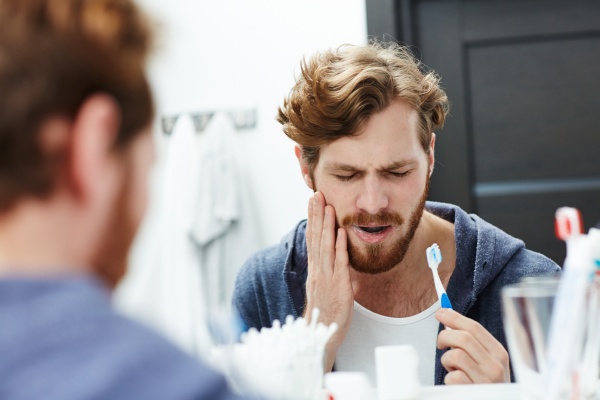“MY TOOTH CHIPPED! DO I NEED TO FIX IT??”

I am frequently asked questions about chipping a tooth-"It's only a small chip, Dr. Dargham; why do I need to fix it?" "It can't be that bad."
Furthermore, many of these same patients use their teeth as tools! Opening bottle caps, jewelry, and other hard objects with your teeth is one of the most common causes of fractured or chipped teeth. Another common habit resulting in broken teeth is BRUXISM, or grinding of your teeth against each other.
So, the answer to the question is YES!
Chipping a tooth means you have lost valuable tooth structure that can now only be replaced with composite resins ( tooth colored fillings ) or porcelain. Natural enamel or dentin will not grow back! This initial chip may then lay the foundation for additional chips or fractures. More severe chips may lead to root canal therapy whereby the tooth's nerves and blood supply are removed from within its roots as a result of the trauma to the pulp ( nerve ), rendering it a non-living and brittle tooth. To reduce the risk of a more severe fracture after root canal therapy is complete, I recommend the tooth be protected with a crown, or full cap.
Minor chips and fractures must not be left unrestored. As I stated above, these may facilitate future breakdown within the same tooth. Using today's naturally based technology, we can repair these chips using modern bonding techniques in natural shades, forms, and contours that mimic nature perfectly. For more severe fractures we have the option of using porcelain veneers and crowns to restore the tooth to its aesthetic form keeping ideal function, form, and contour in mind.
To help reduce the risk of tooth chips and fractures, please follow the recommendations listed below:
- DO NOT grind or brux your teeth. Wear a protective bite splint or night guard while sleeping.
- DO NOT use your teeth as tools to open or break hard objects. Even softer materials may cause abrasion and wear if regularly bitten into.
- DO NOT use your teeth to bite into hard foods.
- Eliminate any nervous habits that use your teeth. These may include biting your nails, your pens and pencils, or even ice cubes.
- DO NOT open bottle caps with your teeth.
Remember, teeth are used to speak, eat, support our facial muscles and lips, and finally to smile. We want to protect, love, and nurture them. Be kind to your smile...allow it to represent who you are...not what you do with it.
I am available to assist you in learning more about how to protect the natural harmony of your smile; please feel free to contact me for further details on how to create that "Smile You'd Be Proud To Wear...ANYWHERE!
Note: The entry photograph is a depiction of how i assisted one of my patients in restoring her chipped smile using dental bonding. The fractures were a result of her using her teeth to open bottle caps on a regular basis. The treatment was completed without dental anesthesia in just under an hour! Do you know of anyone who would like to benefit from the same??


